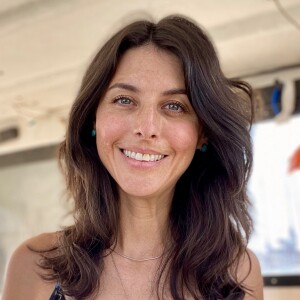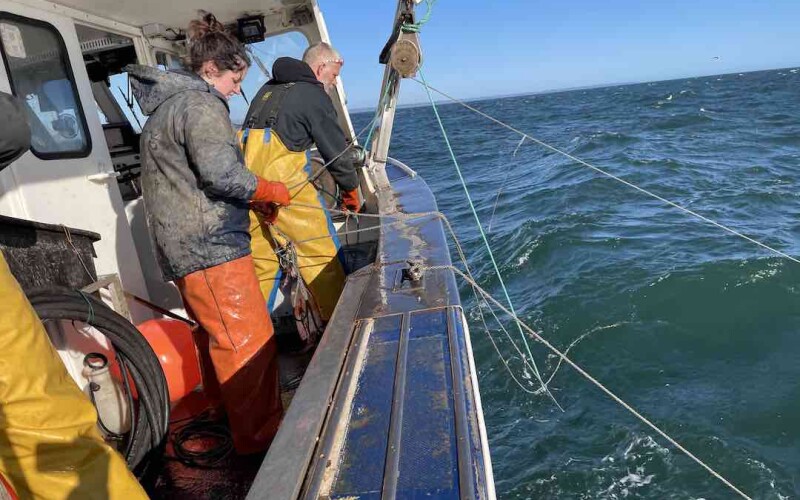When I saw the Local Catch app featured in a Wilmington, North Carolina, newsletter (my fisherman and I live there in the off-season), I was amazed that an undergrad had pioneered a way to support commercial fishing families by building a virtual bridge between fishermen and the market. A means for commercial fishermen to unload a daily catch with a few simple taps of the phone.
Sparked by a business class assignment at the University of North Carolina at Wilmington, Alumni Landon Hill has over 500 active members on Local Catch (and counting) since launching over a year ago. The app currently serves parts of the Atlantic coast with plans to expand nationwide.
I recently connected with Hill at the Seafood Expo North America in Boston, Massachusetts, where Hill was busy foraging new relationships with regional fisheries to bring access to more states. Local Catch offers helpful YouTube videos to walk you through the backend (here, here, and here), but to better explain how fishermen can get involved, check out a full interview with Hill below.
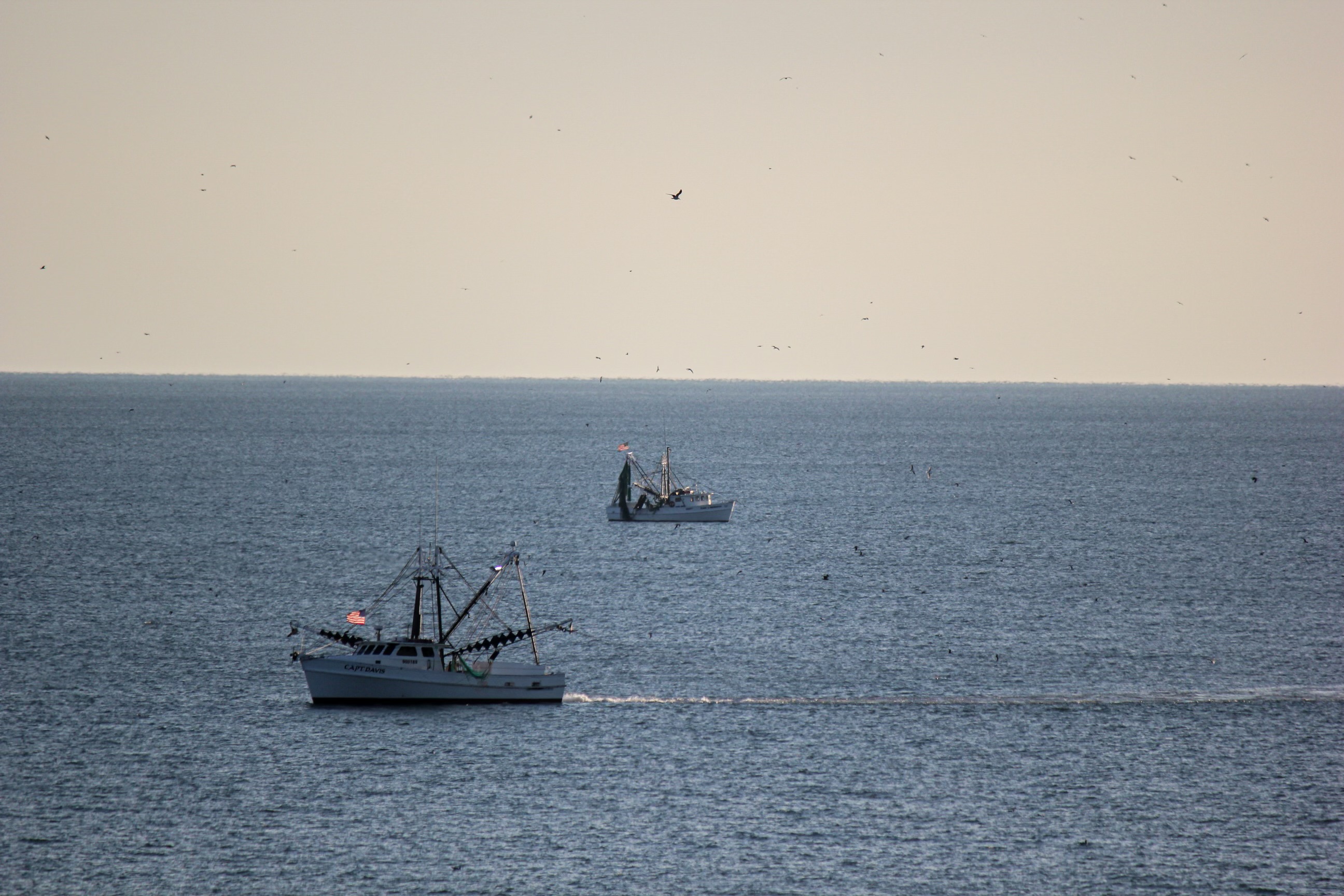
Local Catch App To Revolutionize Commercial Fishing Sales
National Fishermen: Hey, Landon. Thanks so much for your time. I’d first love to know your connection to commercial fishing.
Landon Hill: I’m not a commercial fisherman, but I recently acquired my commercial fishing license to test the app myself to make sure that things are running smoothly. So, I'm new to specifically working as a commercial fisherman. Still learning the ropes, like the permits I need, the trip tickets, and dealing with dealers, all that fun stuff. So commercial fishing is not specifically my background, but it does look like it is my future.
NF: That’s great that you're diving in to figure it out not only for your app but to understand the fisherman's experience. I read that it was a business class that prompted this idea. How did you come around to this idea?
LH: You're pretty spot on there. In my final semester at the University of North Carolina, Wilmington, my business professor asked us to come up with a business concept that would strive in a local coastal community. I had a couple of ideas, some very broad, and then this one is more specific to the commercial fishing industry.
At first, I thought it was a great idea, and I kept pitching the idea to my professor and to other people inside the business department. They really saw a strong position with this and thought that it would be really good for me to go forward with it as my business project and then, if everything looked good with what I discovered in my research and development, to possibly pursue it. So, at the end of the semester, I presented it, and it went great.
I found a really strong need for some of the things that we service inside the app, and they were amazed by it. From there, I met with the app development team, and we started putting pen to paper and actually producing something that we could hold.
NF: So, how did you get the word out? How did fishermen get to know your app?
LH: I'm still doing a lot of marketing and stuff like that. We’re on Instagram, and we open up areas as we see people interested in this service. Because the app can only work if there's ultimately a breakdown of buyers and sellers. If there are just commercial fishermen but no dealers, it's not really gonna work. Once we see enough interest in an area, we open it up. A lot of marketing also goes into this.
Recently we opened up the whole Atlantic coast, and so we're starting a whole new marketing project. Instagram ads, local news stations, and magazines…and that's why I'm really glad that you reached out because this will definitely help us a lot. Also, really targeting an area and then visiting them. I'm a person that likes to meet people and shake hands and sit down and talk. Like, going to restaurants and seafood markets and hanging around the docks where I know commercial fishermen tend to put their boats. So, lots of that.
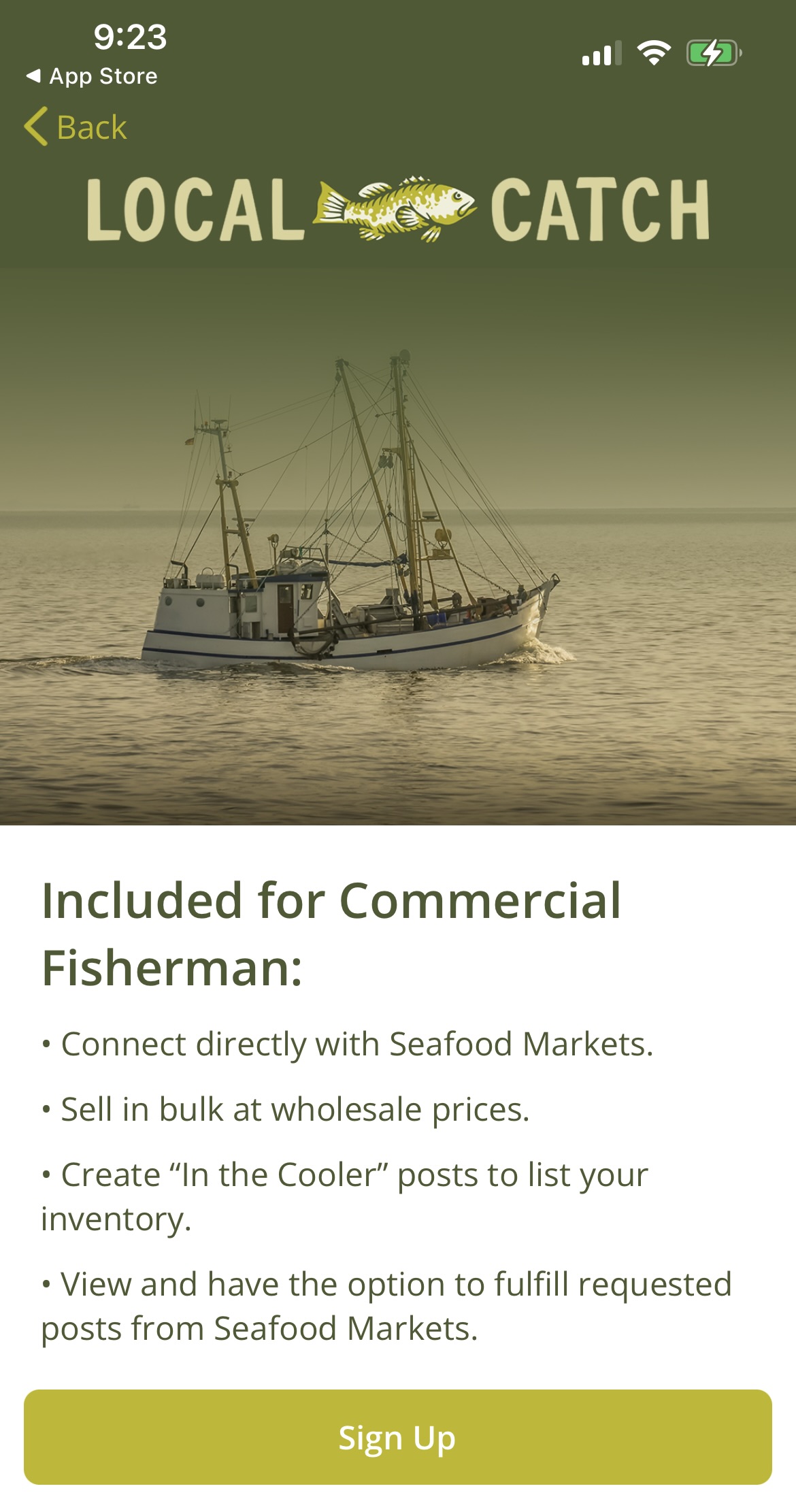
NF: You mentioned opening it up to the entire Atlantic Coast. Which cities are fully operating with this app right now?
LH: The Wilmington, North Carolina area; Charleston, South Carolina; Virginia Beach, Virginia; and the Outter Banks, North Carolina. Florida is showing some interest. New Jersey, some in New York, and Maine are starting to show a lot. I'm really excited about Maine and getting to see more of the lobsters (and others) up there. That's always been something really interesting to me. But hopefully, over the next couple of weeks, we'll really start to grab hold of people. As I said, the Atlantic Coast opened only a couple of days ago (at the time of the interview), so we are still really new to see how the public responds.
NF: What is the first step for a commercial fisherman to be a part of the Local Catch App?
LH: Right off the bat, I wanted it to be extremely easy. We wanted to help the industry. We did not wanna make it any more complicated. We are simply a platform for people in this industry to go to for the sole purpose of buying or selling fresh local seafood.
Commercial fishermen can download the app, go in there, and when you hit “Sign up,” it literally shows one of four different users. One option is “Commercial Fishermen.”
From there, you fill out a form, provide us with your commercial fishing license number, and then you're ready to rock and roll. You can connect with people up to a 50-mile search radius. We like to keep it in that 50 miles to focus on the local aspect of the app. We don't want people too far inland getting seafood that isn't properly stored or refrigerated or anything like that. We really want it to be a fresh local aspect of the app so, on the buying side, they know they're getting something. They're getting good quality.
NF: Since the app launched, have you noticed there is a seafood product that sells easier than others?
LH: From the beginning, I was so interested to see what peaked, and obviously, the big stuff like flounder and shrimp and oysters and stuff like that that you see on almost every single menu at a seafood restaurant (in NC) does great.
But what I've found that could be really beneficial is there are lots of people that just love seafood, but they don't really know what the area is known for or the times of the year that specific seafood is common to be caught.
I think we're gonna start working on pairing up with seafood markets or commercial fishermen to provide a blog or some sort of page on our website, or even the app, where people that aren't extremely knowledgeable of the local seafood they have in their area to go to and be like, “Oh, I haven't tried triggerfish, and it seems to be kind of common this time of year. Let, let's throw out a request for that.”
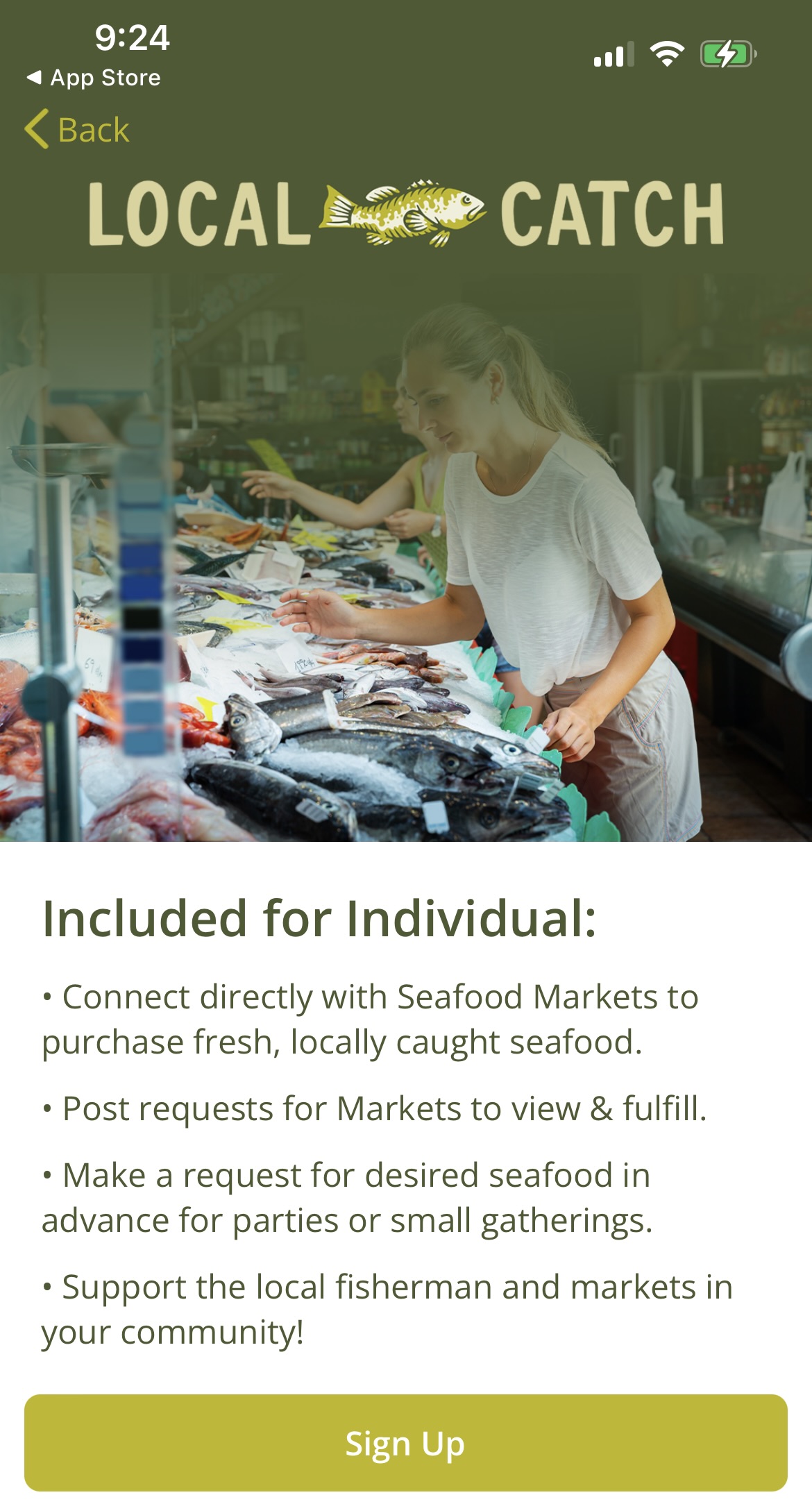
NF: Speaking of expanding your reach, if someone on the West Coast wanted to join Local Catch, for it to work, we would need a commercial fisherman, at least a buyer, or a market to get started. Correct?
LH: Yeah. So, right now, you can download the app; you just can't sign up and create an account with us right now on the West Coast. Hopefully, we're gonna be out there very soon. I have had some people on the West coast reach out wanting to know when we’re opening up. But once we open up a zip code, that's how we do it. We go by zip code.
Once your zip code is opened up, you can download, sign up and use the app.
The way the app on the backend works is that it allows commercial fishermen to connect directly with seafood markets. Commercial fishermen cannot (typically) connect with individuals or restaurants. Just by law, a dealer has to be involved or someone with a dealer's license, so things are recorded and handled properly.
Commercial fishermen that do hold a dealer's license can sign up as both and have that aspect so they can connect with all users. But if you're just signed up as a commercial fisherman, you will connect with restaurants and markets. Then, in return, dealers and seafood markets will be able to connect with commercial fishermen as well as individuals and restaurants to buy and sell to both.
If we're opening your area, you will be able to download and start using the app. If we are in your area, that means we've seen enough interest in this service. So there should be buyers and sellers already in your area. How many is unknown, depending on the town.
I've had a couple of people reach out that say, “Hey, we haven't seen too much new stuff in the app. Is everything going right? What's going on?” And I'm like, I'm sorry. I wish that we were the ones that were able to provide fresh local seafood, but we're just a platform.
I'll reach out to some seafood markets in your area and let them know that we have buyers waiting and maybe update some of the new stuff that they’ve recently gotten in.
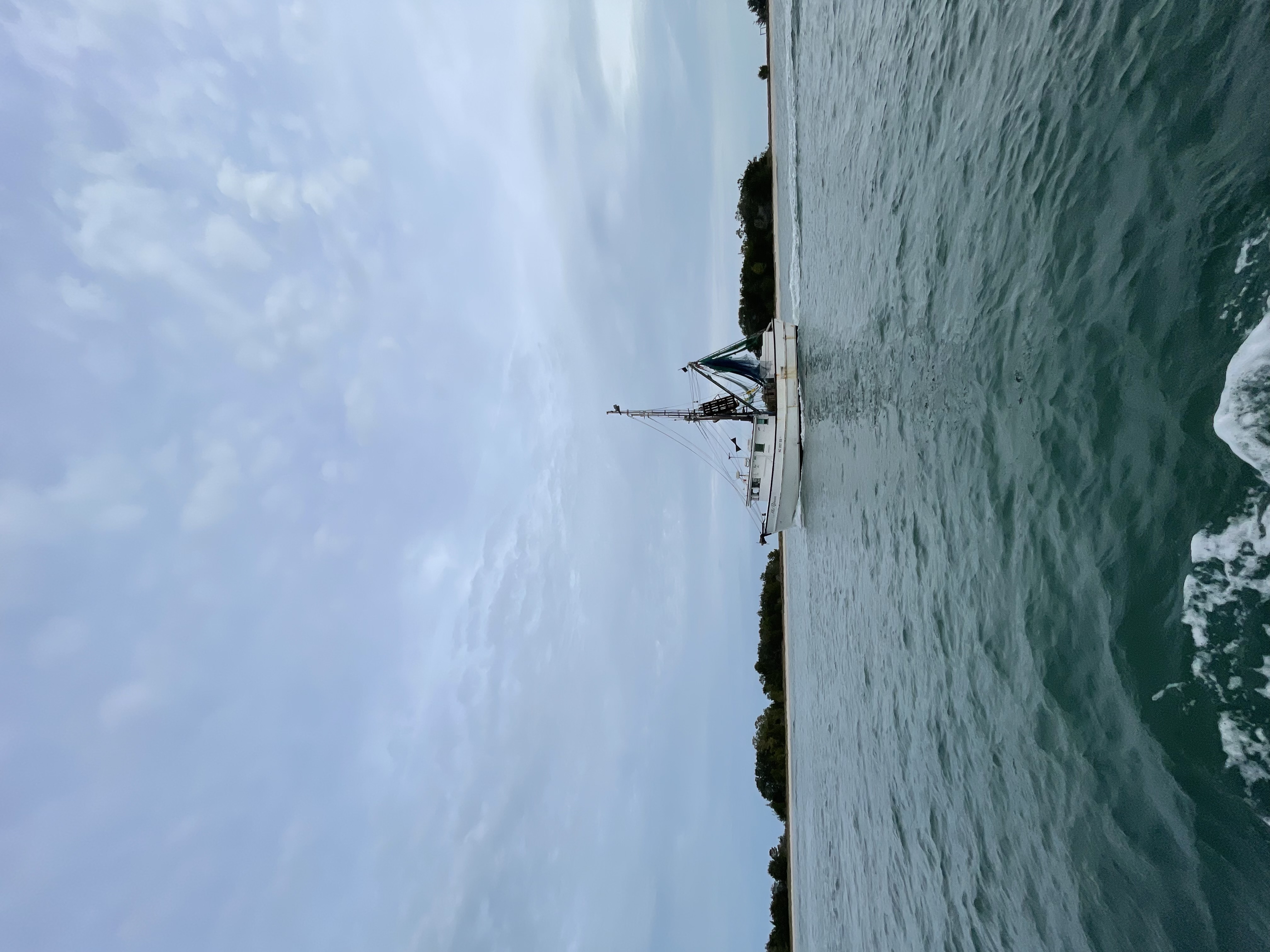
NF: Got it. So the best way to connect with you or to show interest is to reach out through the app or Instagram, or Facebook DMs. What's the best way for you to know that people really want to use your platform?
LH: Yeah, definitely reach out in any way possible. I'm taking down zip codes, states, and cities, trying to figure out where the next spot we’ll open up is. But yeah, Instagram, Facebook, email, and the website have a Contact Us page.
I do know if you go into the app and try and sign up, it'll ask you for your zip code, so you don't have to fill out a long form. We state if we're not in your area, then it asks for your zip code, and if we're not there, it'll prompt you to input your or friends' emails to let us know where you are at.
NF: And how long does it generally take for fishermen to connect with the buyers before, and how long does it take for the product to get to the people?
LH: We're seeing a lot on the backend of people using and logging in and checking the app pretty regularly. So, if something is really popular, like shrimp and flounder or more common stuff, it moves pretty quickly.
In terms of payment, and delivery or pickup, we're leaving that open to the buyer and seller to negotiate.
In the form when you're creating an account, “In the Cooler” is what we are calling it, which means fish or shellfish that are already acquired and ready to be bought. It asks for your preferred payment method or your preferred delivery or pickup. There's also a messaging part of the app where, if delivery does not work for the commercial fishermen, they can say, “Hey, I have what you need, but I can't get to you. You can either pick it up, or I can meet halfway.” They can figure that out.
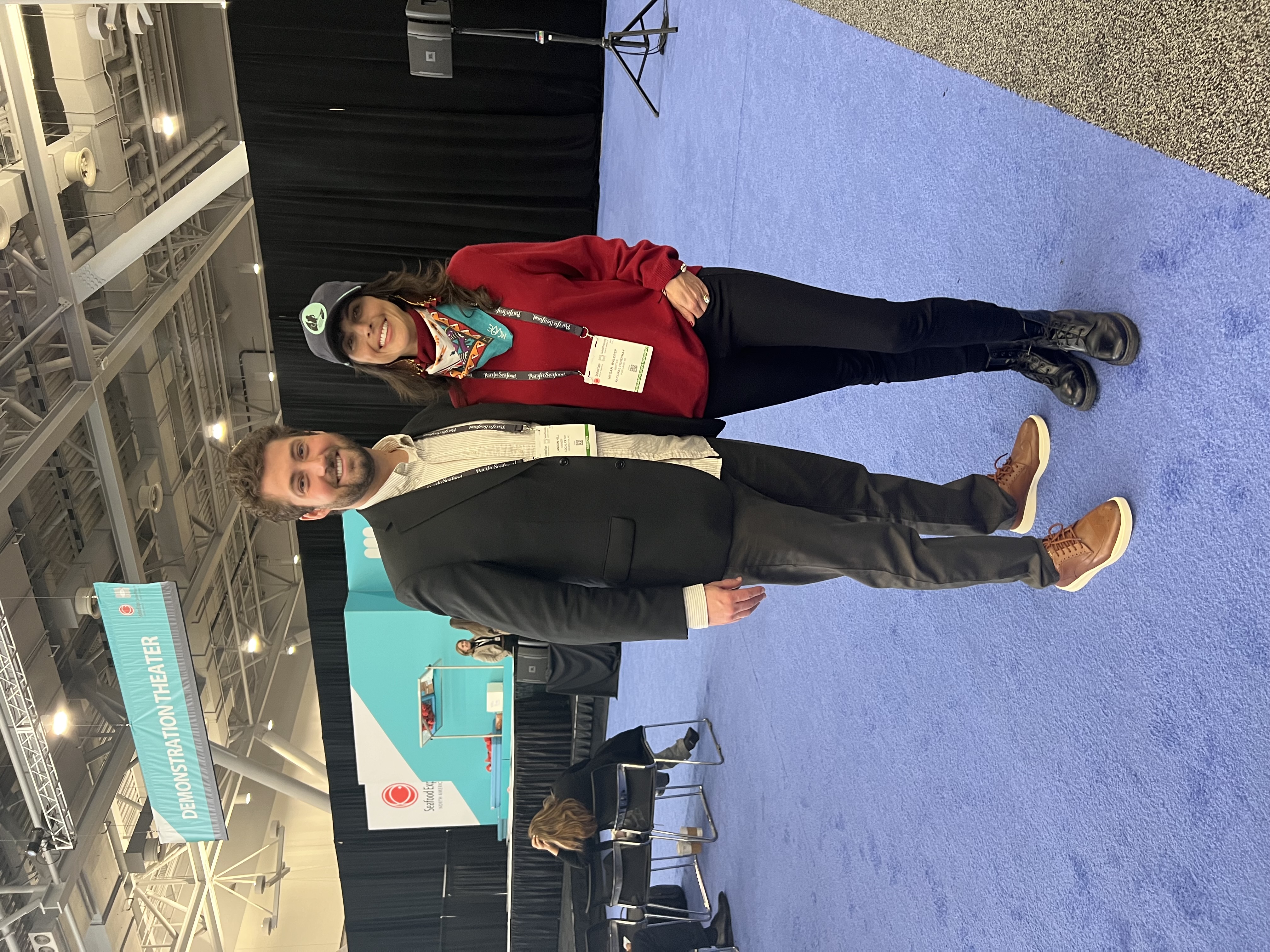
NF: That makes sense. I forgot to ask, where are you from?
LH: I'm originally from Greenville, North Carolina. The closest beach is Atlantic Beach, about an hour away. But I spent half my childhood down in Ocean Island Beach, which is right there on the border of the North and South Carolina state line. After graduating high school, I moved to Wilmington, North Carolina, to attend UNCW and have not left. I don't wanna leave the coast anymore.
NF: I hear that! Was this app developed in grad school or undergrad?
LH: That was undergrad. I finished that up in 2021, and I haven't gone back to school. I've just been working on this full-time as well as doing some real estate on the side.
NF: Yep. Wilmington’s a hot place for real estate right now. Lots of people want to be there, including my husband and me in the off-season, my parents, my sister, and her family. We love it… Anyway, what is the biggest takeaway you would like for people to know about Local Catch?
LH: We've had tons of good feedback, but we've also had some confusion and pushback.
We're not trying to compete with anyone.
We simply saw a need for updating inside this industry. This industry has been very passionate and something close to me. And I saw that this industry had had little to no innovation over decades. Ultimately, this is a proven business model. It works in tons of other industries. It just hasn't been applied to commercial fishing.
We're here to help, to make things we're streamlined. Not to have confusion or commercial fishermen coming back wondering what they’re gonna make off of this full day's worth of work before they even leave the dock, they can know that so-and-so down the street is willing to pay this much per pound if they go out and catch this specific species.
I think it'll also help on the buying side to know that they have commercial fishermen out there trying to fulfill orders so they can keep seafood markets stocked with local seafood.
And that brings me to the branding side of this.
We want the Local Catch logo to show a quality aspect. So if you see it on a menu, we want the average person to know that it’s fresh and local, that it hasn't been on an 18-wheeler across the country for the past three days. That it was caught by someone working very hard right in their backyard to have it put right in front of them. That's a big, big part of what we're trying to do.
NF: That's amazing. Congratulations on that and on your idea coming to life. On behalf of commercial fishing families, we thank you for that!
LH: Thank you so much. You’ll be in Boston, too, right?
NF: Yeah, that’s right, we’ll get to meet. I’ll see you there! Are you speaking or just attending?
LH: No. I'm just attending. I debated getting a booth, but being our first year attending, I wanted to just get out there. I'm going to walk around, do some networking, and maybe next year, participate and have something for people to test out the app.
NF: Sounds like a great idea. Thanks so much again for your time. I'll see you in Boston!
To learn more, visit Local Catch App at www.localcatch.app, on Instagram at @local.catch, on Facebook at @local-catch, or email them directly at localcatchteam@gmail.com.




